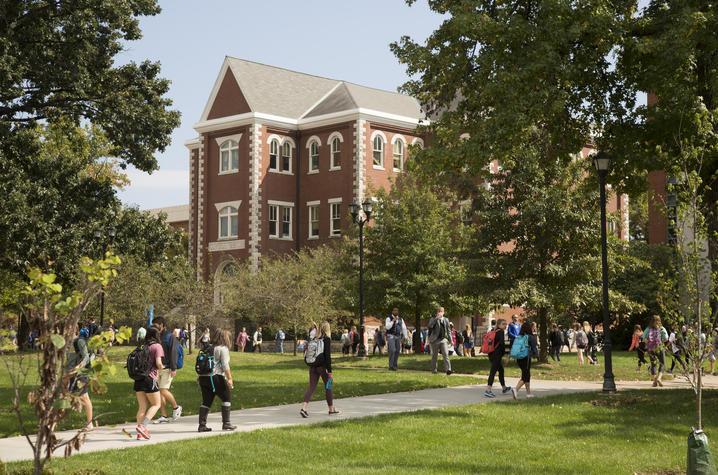Moving Forward Together: Increasing Accessibility to Resources and Funds

LEXINGTON, Ky. (Sept. 8, 2016) — Last November, African-American student representatives met with President Eli Capilouto, Provost Tim Tracy, Interim Vice President for Institutional Diversity Terry Allen and other administrators at Maxwell Place. The gathering was held to discuss the campus racial climate. The students presented their top five concerns with solutions that referenced the strategic plan.
The concerns presented are as follows:
1. Accessibility to resources and funds for organizations, scholarships, African-American programming, etc.
2. The Office for Institutional Diversity is not effectively structured or empowered.
3. Measurable benchmarks for diversity and accountability measures.
4. Lack of African-American professors and their retention on campus.
5. Class on race and ethnicity should be a graduation requirement for all students.
"The students provided a thoughtful and comprehensive list of recommendations that have been, and will continue to be, taken very seriously and acted upon. We must communicate these actions with transparency," said Interim Vice President for Institutional Diversity Terry Allen. "Our primary objective is equally valuing the contribution of every student and providing an inclusive environment that supports student success."
Through a series of UKNow stories, updates on the on-going work associated with each of the students' concerns will be communicated.
The first of the concerns being addressed is the accessibility to resources and funds for organizations, scholarships and African-American programming.
UK has increased investment in diversity scholarships at both the undergraduate and graduate level.
During the 2015-2016 academic year, 209 students were awarded the Provost Persistence Grant — a grant that assists undergraduate students who are experiencing financial challenges. Of the 209 students that received the grant, 115 (54 percent) were underrepresented minority students.
Additionally, scholarships for minority students have increased. The amount of the Parker Scholarship fund for undergraduate students has more than doubled from $7.5 million in the 2009-2010 academic year to $16 million in the 2016-2017 academic year. The amount of the Lyman T. Johnson Fellows Award fund for graduate students has increased from $926,000 in the 2011-2012 academic year to $1,064,900 in the 2015-2016 academic year.
As it relates to African-American student programming, Student and Academic Life and the Office for Institutional Diversity have taken the students' comments into consideration. Adjustments have been made to ensure any requests and needs are appropriately considered in a timely manner. Last semester, Underground Formal was reinstated by the Student Activities Board. The event took place on Feb. 19, and more than 400 students attended. As it relates to programming needs, $5,000 has been allocated to the Martin Luther King Center for programming. The 2016-2017 fiscal year budget will also retain a $10,000 annual increase to the Diversity Organizations Council programming budget.
Students were also concerned with access to campus facilities for programming. With the decommissioning of the Student Center, more demand has been put on existing facilities. Administrators across campus have been working diligently to identify appropriate venues for routine meeting and special events and off-campus facilities to the extent necessary.
In the Graduate School, new positions have been established as Health Colleges Student Diversity Services expanded its mission to include all graduate and professional students and changed its name to the Center for Graduate and Professional Diversity Initiatives (CGPDI).
Allies for Diversity — a mentoring program for underrepresented minority graduate students — has been established. The Graduate School has compiled a list of faculty mentors that expressed interest in being involved in this initiative. Processes are underway to identify online resources that will provide guidance to faculty mentors on the mission, purpose and best practices for the program.
"These initiatives, and many more currently underway and yet to come, require the commitment and involvement of every member of the university community," Allen said. "It takes well-focused strategies and ongoing assessment to remedy disparities, to implement sustainable change over time. Much work remains."
UK is the University for Kentucky. At UK, we are educating more students, treating more patients with complex illnesses and conducting more research and service than at any time in our 150-year history. To read more about the UK story and how you can support continued investment in your university and the Commonwealth, go to: uky.edu/uk4ky. #uk4ky #seeblue
MEDIA CONTACT: Blair Hoover, 859-257-6398; blair.hoover@uky.edu




